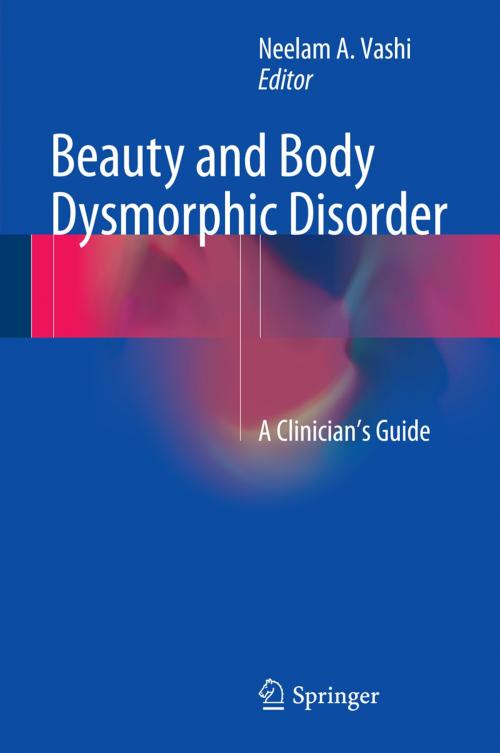Beauty and Body Dysmorphic Disorder
A Clinician's Guide
Nonfiction, Health & Well Being, Medical, Specialties, Dermatology, Surgery, Plastic & Cosmetic| Author: | ISBN: | 9783319178677 | |
| Publisher: | Springer International Publishing | Publication: | September 3, 2015 |
| Imprint: | Springer | Language: | English |
| Author: | |
| ISBN: | 9783319178677 |
| Publisher: | Springer International Publishing |
| Publication: | September 3, 2015 |
| Imprint: | Springer |
| Language: | English |
Over the decades, research has demonstrated that in categories of life deemed to be important, beautiful people achieve more desirable outcomes, are judged more favorably, and receive preferential treatment. An understanding of the historical aspects, science, and implications of what the human mind finds aesthetically pleasing is quintessential for dermatologists, plastic surgeons, and others who practice aesthetic medicine as the importance of beauty in today’s society is what brings patients into clinics.
While an element of dissatisfaction with one’s appearance is commonplace, clinicians should remain vigilant for individuals who seek cosmetic procedures to quell excessive body image concerns that are out of proportion to objective physical findings. Body dysmorphic disorder (BDD) is a disorder of self-perception; it is the impairing preoccupation with a nonexistent or minimal flaw in appearance. According to recent statistics, BDD occurs in 0.7–2.4% of the general population; however, multiple studies have suggested an incidence of 6–16% in patients seeking aesthetic medical treatments. Moreover, a vast majority will at some point seek dermatologic treatment and cosmetic surgery. Such patients are unlikely to be satisfied with corrective procedures, and only 15% of dermatologists surveyed thought that they could successfully treat BDD. Therefore, Beauty and Body Dysmor
phic Disorder aims to assist dermatologists, plastic surgeons, and other aesthetic providers in recognizing key characteristics as well as providing treatment strategies to help in caring for those with BDD.
Over the decades, research has demonstrated that in categories of life deemed to be important, beautiful people achieve more desirable outcomes, are judged more favorably, and receive preferential treatment. An understanding of the historical aspects, science, and implications of what the human mind finds aesthetically pleasing is quintessential for dermatologists, plastic surgeons, and others who practice aesthetic medicine as the importance of beauty in today’s society is what brings patients into clinics.
While an element of dissatisfaction with one’s appearance is commonplace, clinicians should remain vigilant for individuals who seek cosmetic procedures to quell excessive body image concerns that are out of proportion to objective physical findings. Body dysmorphic disorder (BDD) is a disorder of self-perception; it is the impairing preoccupation with a nonexistent or minimal flaw in appearance. According to recent statistics, BDD occurs in 0.7–2.4% of the general population; however, multiple studies have suggested an incidence of 6–16% in patients seeking aesthetic medical treatments. Moreover, a vast majority will at some point seek dermatologic treatment and cosmetic surgery. Such patients are unlikely to be satisfied with corrective procedures, and only 15% of dermatologists surveyed thought that they could successfully treat BDD. Therefore, Beauty and Body Dysmor
phic Disorder aims to assist dermatologists, plastic surgeons, and other aesthetic providers in recognizing key characteristics as well as providing treatment strategies to help in caring for those with BDD.















